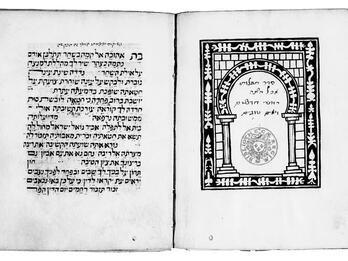Shevet Yehudah (The Staff of Judah)
Solomon Ibn Verga
ca. 1520
The slaughter that occurred there, in Lisbon:
I was out of the city, and when I returned after several days they told me that the two [events, namely, the massacre within Lisbon and in the surrounding countryside] are not to be compared, the only common factor being that it was evil and bitter in the extreme. And that which an old man related to me…
Creator Bio
Solomon Ibn Verga
Born in Castile, Solomon Ibn Verga was a historiographer. With the 1492 Edict of Expulsion from Spain, Ibn Verga fled to Lisbon; in 1497, he was forcibly baptized. In 1506, Ibn Verga escaped to Rome, where he wrote Shevet Yehudah (The Staff of Judah), a series of chapters describing events in the history of the Jews, mainly persecutions. Solomon’s son Joseph Ibn Verga edited, completed, and published the manuscript in 1554.
Related Guide
Birth of an Idea: Defining the Early Modern Period
The emergence of the early modern period (1500–1750) in Jewish history is relatively recent and complex.
Related Guide
Defining Trends of the Early Modern Period
Paradoxically, both centrifugal forces (expulsions, migrations creating global dispersion) and centripetal trends (Hebrew printing, kabbalah) unified Jews in the early modern period.
Related Guide
Early Modern Italy: Where East and West Meet
Ashkenazim, Sephardim, and Marranos encountered each other in Italian cities, developing community structures that later influenced Jewish communal organization throughout the western world.
You may also like
Seder Eliyahu zuta (The Minor Order of Elijah)



